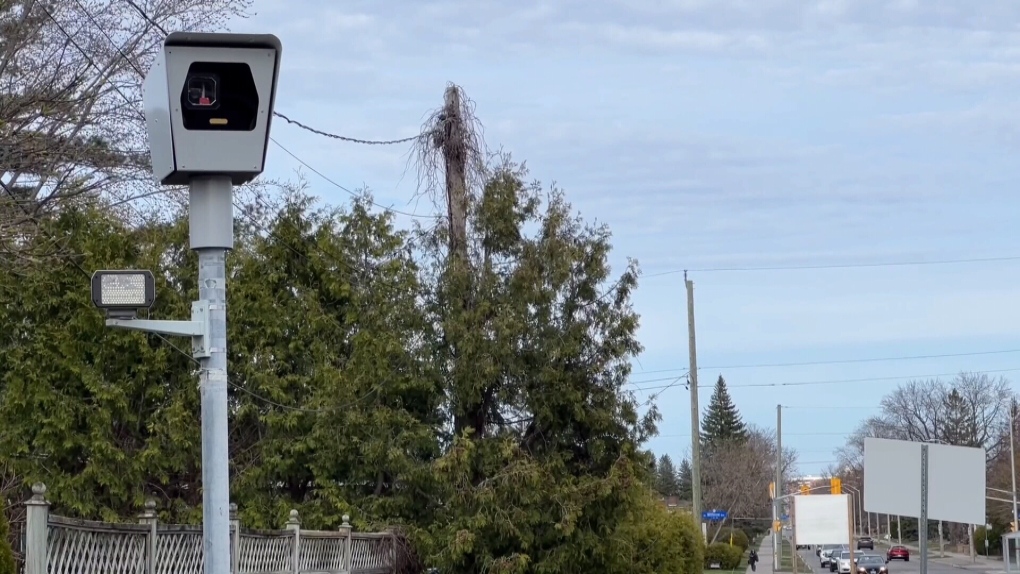Ottawa motorists could soon lose the ability to fight their photo radar and red light camera tickets in provincial court, as the city looks to streamline the process for challenging traffic tickets issued on city streets.
A report for the city’s finance and corporate services committee recommends the city implement an administrative penalty system for adjudicating parking and camera-based offences, with municipally appointed screening and hearing officers adjudicating ticket disputes instead of the provincial court system.
With the city of Ottawa anticipating more than one million tickets to be issued through automated speed enforcement cameras and red light cameras this year and next year, staff say moving to an administrative penalty system will provide a “fair, efficient, and timely process to manage minor offences and resolve ticket disputes.”
Currently, a ticket for a red light or photo radar camera infraction is certified by a Provincial Offence Officer, and the ticket is mailed to the defendant plate holder. If the offender decides to challenge the ticket, they fight the ticket in provincial court.
In a report, staff say with more photo radar cameras being installed in Ottawa, “growth in high-volume, minor offences is consuming a growing proportion of court time, putting pressure on the allocation of limited judicial resources across all (Provincial Offences Act) offences.”
Parking and camera-related tickets currently make up over 95 per cent of all infractions in Ottawa, while the city only has access to two thirds of the judicial resources in provincial offences court compared to pre-COVID levels, according to staff.
If the city implements the administrative penalty system to deal with parking and camera-based tickets, motorists will no longer be able to challenge the ticket in court. Instead, city-appointed officers would manage the dispute and resolution processes for the tickets.
“An ‘administrative penalty system’ will provide improved service to the public and ensure public satisfaction with a fair, efficient, and timely process to manage minor offences and resolve ticket disputes,” staff say. “Leveraging an APS program for minor offences will ensure the POA courts have sufficient capacity to focus on adjudicating more serious offences and will support the Road Safety Action Plan.”
Under the administrative penalty system, drivers who receive a photo radar or red light camera ticket can either pay the penalty or request a screening review by a screening officer. Following the decision by the screening officer, the offender can request a review by a hearing officer, who will be appointed by council. The decision of a hearing officer is final.
The report says disputes over camera-related and parking offences will be heard “within a few weeks or months,” and screening officer reviews will be conducted in writing with a fixed time for a further review by a hearing officer.
“By giving the city control over ensuring adequate adjudicative resourcing to meet demand and providing defendants the ability to receive dispute outcomes in less than half the time than is offered under current state POA,” staff said. “Second, it will allow the City to ensure the appropriate controls are put in place through various policies and procedures mandated by APS legislation to provide residents a fair hearing in front of a trained, neutral decision maker.”
There will be a one-time start up cost of $1.57 million for the city to cover renovations, equipment and training. However, staff estimate the city will save nearly 35 per cent by switching from the Provincial Offences Act to administrative penalty system.
In February, Toronto city council approved a plan to move ticket disputes for photo radar and red light cameras from the provincial courts to a city-administered penalty system.
Ottawa plans to appoint 10 hearing officers per year, starting in 2024, 2025 and 2026, with a total of 30 hearing officers available five to 10 days per month.
Under the plan, the administrative penalty system would be set up for parking tickets in the spring of 2025, while camera-based tickets would move to the new system in the winter of 2025.
“A phased approach was recommended to allow appropriate set up of the infrastructure and resources required to implement an APS and be able to leverage lessons learned and operational experience to later implement camera-based offences,” the report said.
The city of Ottawa currently has 40 automated speed enforcement cameras and 86 red light cameras. A total of 60 photo radar cameras are expected to be installed by the end of this year.
The city estimates one million tickets will be issued through photo radar cameras in 2024, with another 1.5 million tickets issued in 2025. Red light cameras are expected to issue 56-thousand tickets in each of the next two years.
Staff expect the number of demands to go to trial for camera-related tickets to increase by 15,000 this year and 12,000 in 2025.

